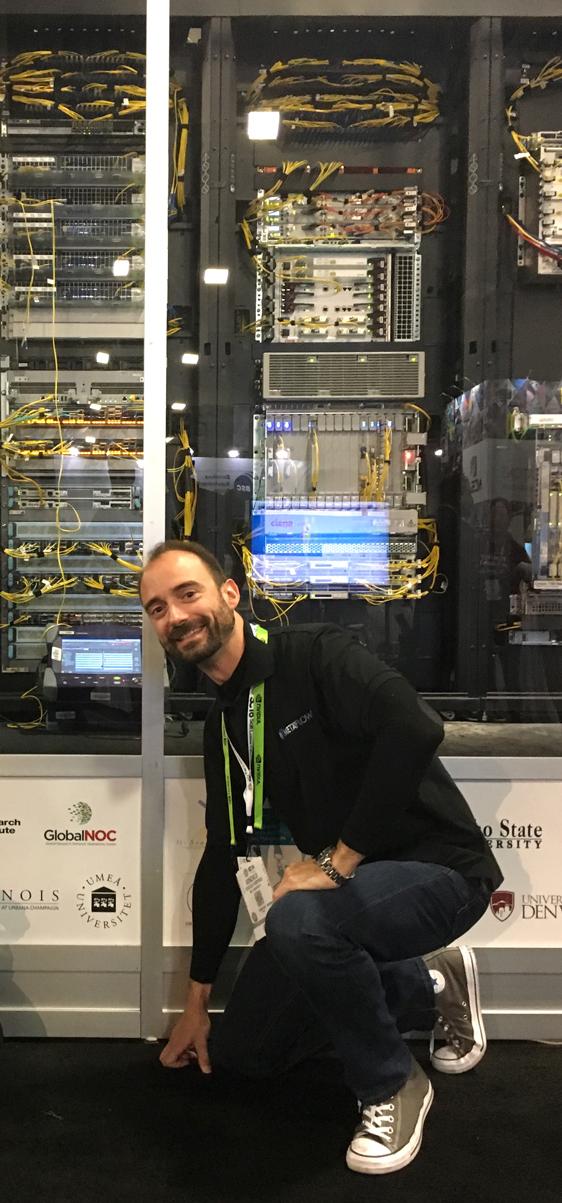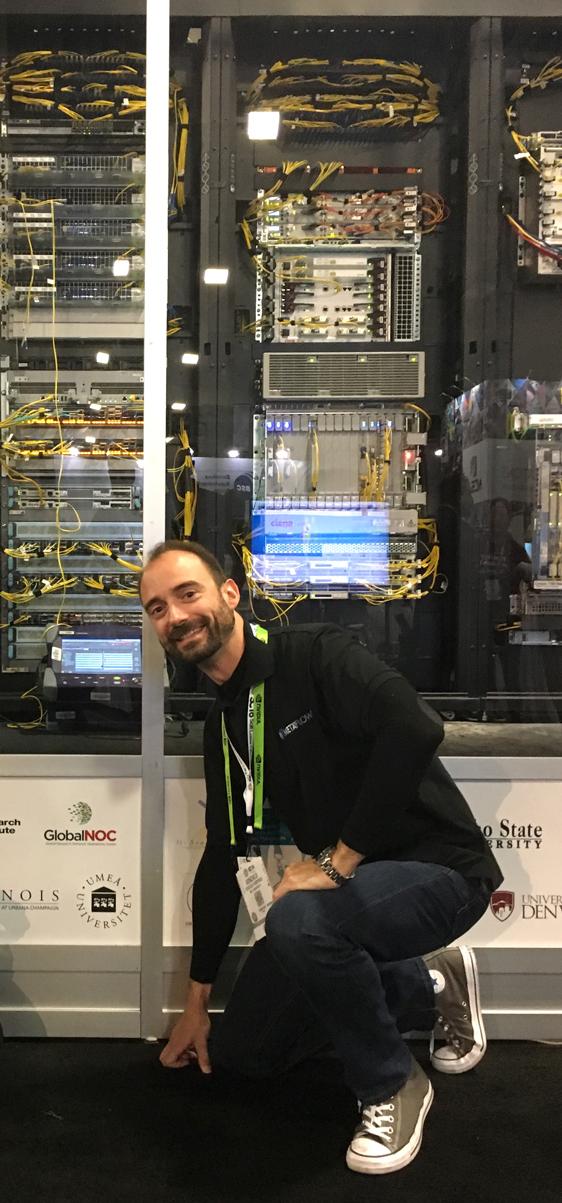
Credit: Gonzalo Rodrigo
Computer scientist Gonzalo Rodrigo at Umeå University in Sweden has developed new techniques and tools to manage high performance computing systems more efficiently. This in an effort to comply with the increasing demand to handle large amounts of data within research and allowing for advance simulations.
In a world paralysed by fear of global warming, energy shortage, and resource depletion, an unexpected hero arises: High Performance Computing (HPC). An HPC system aggregates the power of tens of thousands of processors interconnected by low latency optical networks to run large-scale scientific applications. They support research in fields when it is practically impossible to advance only through experimentation and observation. For instance, research on weather models, ground water movements, or new energy sources rely on simulations and data analysis performed on increasingly larger HPC systems.
However, traditional HPC schedulers can no longer efficiently manage the new complex scientific applications of even more sophisticated newer systems. In his doctoral dissertation at Umeå University, Gonzalo Rodrigo has developed new techniques and tools to manage HPC systems more efficiently, increasing their capacity to support advanced scientific research.
In his doctoral dissertation, Gonzalo Rodrigo at the Department of Computing Science at Umeå University, presents methods and tools to efficiently schedule application and workflows in High Performance Computing Systems and increase the speed of the scientific work they can produce.
"In detail, I have provided a better understanding of trends of current workloads and I have developed a general application-oriented scheduling model in HPC systems, a scheduling simulation framework to support future research on scheduling algorithms, and a scheduling technique for efficient execution of complex scientific workflows," says Gonzalo Rodrigo. The outcome of this work also includes two open-source projects that will enable future research on HPC scheduling.
Work leading to Gonzalo Rodrigo's dissertation has been conducted in collaboration with researchers from the Data Science and Technology Department and the National Energy Research Scientific Computation Center at the Lawrence Berkeley National Lab in the US.
Gonzalo P. Rodrigo Álvarez comes from Spain. He holds a Master's in Computer Engineering from Universidad de Zaragoza and a Master's in Business Administration from ESIC, both in Spain. In December 2012, he commenced his doctoral studies at Umeå University in Sweden under the tuition of Professor Erik Elmroth and later also Dr Lavanya Ramakrishnan at the Lawrence Berkeley National Lab. During his doctoral studies, Gonzalo Rodrigo held a visiting research fellowship at the Lawrence Berkley National Lab for a year and a half and a four-month internship at Google Inc.
###
Media Contact
Ingrid Söderbergh
[email protected]
46-706-040-334
@UmeaUniversity
http://www.umu.se/umu/index_eng.html
############
Story Source: Materials provided by Scienmag





